Tears On The Shore: How Lagos $1.5 Billion Seaport Ruined Fortunes Of Local Communities
One common thing the fishermen told PREMIUM TIMES: The dredging activities by the seaport engineers are destroying their fishery resources and chasing them away. The more they dredge, the farther the fishes run.
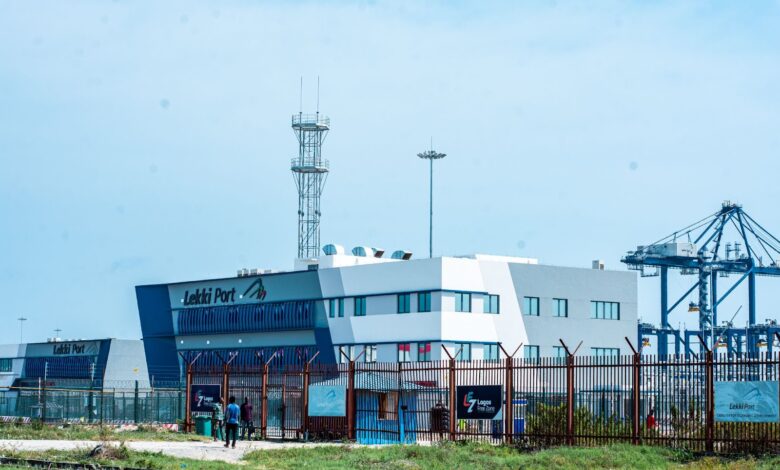
Nobody wanted to tell me the story behind the pain of a people in the coastal settlements of Lekki in Lagos. A few people said it had better be buried in a secret grave forever. When I probed further, I found a narrative bizarrely told with grief.
Lekki was a blossoming town of aquatic splendour blessed with green vegetation and rich biodiversity. But the government would endorse a multi-billion naira seaport to grow the national treasury — at the expense of the locals in Lekki and its ecosystem.
Then I asked: How can a people conceal their pains in eternal darkness? The locals said they feared the wrath of the authorities whose passion for generating revenues appears to trump their commitments to the safe living of the people.
The Danger Across
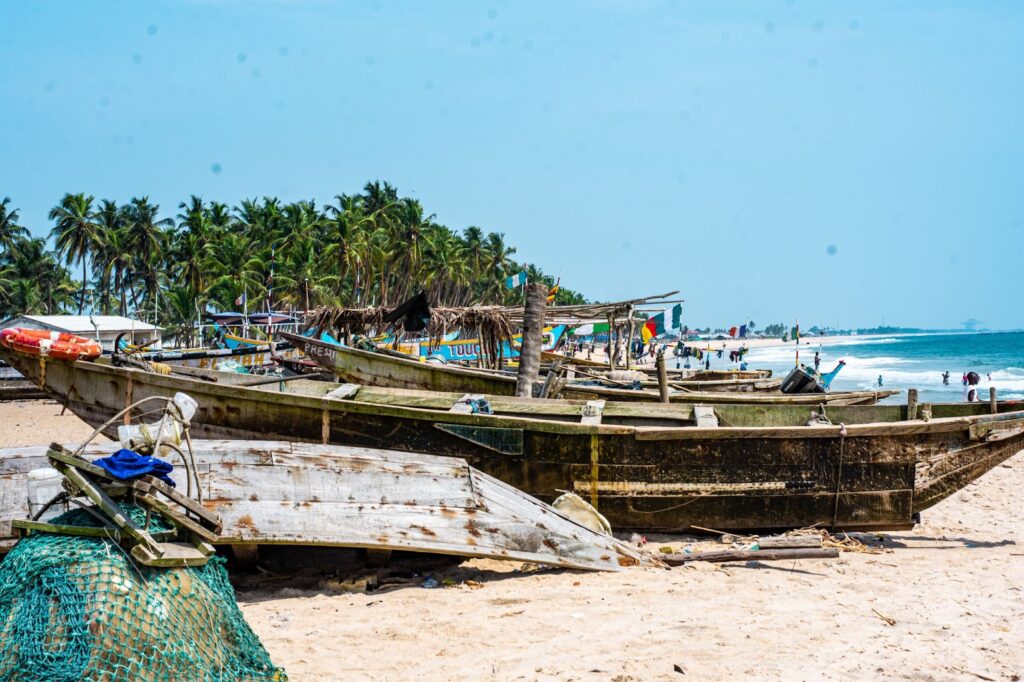
In Oct. 2022, I witnessed a wave of magic bricks turning into modern houses and industries in Lekki town. In Magbon Segun village, for instance, the sea rolled up into a mountain, roared and simmered downward while a horde of helmeted Chinese workers engineered the Lekki Deep Port a distance away.
Life can be good on the Lekki shore, residents said. Fathers fed their families with proceeds from fishing. Children looked up to their successful fishermen-fathers. Fishes in the Lekki streams beckoned on the people, and fish vendors smiled at one another at different points of sale.
But this rural life was short-lived for the people when the deep seaport emerged, causing them deep pain. Now, the port has stripped the Lekki community of its charm and the people of their wealth. Catfish, tilapia, and crabs were easy to catch; Chinese fish and sharks were the pride of a successful fisherman. But these aquatic blessings are disappearing, ruining the livelihood of the people.
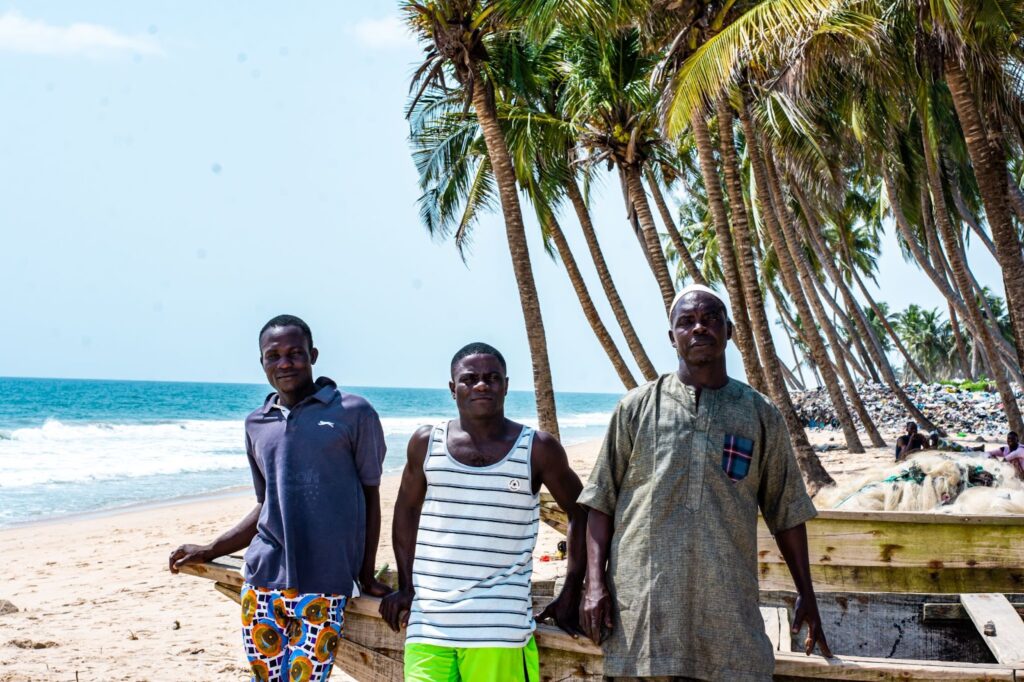
Fishermen sat in groups tending to their nets and wearing long looks on the shore of Magbon Segun. Their business was crumbling, they said, and the cost of livelihood was almost costing them their lives.
One said he had fished for three decades, bought cars, built houses and sent children to schools only to become a peasant fisherman. Another said he used to earn up to N200,000 for every fishing adventure but rarely makes up to N30,000 now. A fish vendor said she had toiled for days to trade fish, but her efforts yielded nothing.
One common thing the fishermen told PREMIUM TIMES: The dredging activities by the seaport engineers are destroying their fishery resources and chasing them away m. The more they dredge, the farther the fishes run.
The locals’ claim seems sensational, but the United Nations Economic and Social Commission for the Pacific (UNESCAP) confirmed it in a report, saying dredging removes marine habitat, leading to a gross loss of fishery resources. The report also said disturbance from construction activities on a port site terrorises fishes, displacing them while dredging removes plants and animals living in the sea.
As of July 2022, the construction works on the Lekki seaport were nearing conclusion with dredging activities pegged at 97. 90 per cent. By Jan. 2023, the port was set to commence its operation.
“We are pleased to announce that the construction of Lekki Port is now at 94.3% completion,” Lekki Deep Sea Port stated on its website at the time.
Enters the $1.5 Billion Economic-Friendly Seaport

On Jan. 23, President Muhammadu Buhari inaugurated the Lekki seaport, the deepest in sub-Saharan Africa. On a build, own, operate, and transfer (BOOT) basis, the seaport project, a 45-year concession, was awarded to the Lekki Port LFTZ Enterprise Limited (LPLEL) by the Nigerian Ports Authority (NPA). Occupying 90 hectares of the 830 hectares of land reserved for the Lagos Free Zone (LFZ), the port was constructed by the China Harbour Engineering Company Limited (CHEC).
On several occasions, the Lagos government had said it would generate $201 billion from the Lekki deep seaport when completed. They described the project as “a game-changer and a pacesetter”. The Infrastructure Concession Regulatory Commission (ICRC) added that the new port would contribute $361 billion in economic impact in 45 years. The ICRC projected that $201 billion would be generated from revenue, royalties, duties, and taxes while $158 billion would be gained from direct and indirect business impacts.
Before the construction of the Lekki seaport, an Environmental and Social Impact Assessment (ESIA) was conducted on the 90 hectares of land the project would occupy and its host communities. The project site was surveyed for assessment of the human, biological and physical environment following the Federal Government’s Environmental Impact Assessment Act of 1992.
In the assessment document, environmental experts predicted there would be adverse impacts on traditional livelihoods, noting that fishing would likely be restricted from operating in the channel area during dredging and marine infrastructure construction. They observed that the project would hurt the terrestrial ecosystem of the port site vegetation, soil and the removal of wildlife habitat.
They foresaw, again, that dredging of the harbour and access channel, construction of marine infrastructure, and disposal of dredged material would injure the space’s biodiversity. They expressed trepidation upon an adverse impact on the marine ecosystem resulting from the maritime shipping activity, noting that the landscape’s biodiversity would be in danger, primarily due to the induced urbanisation of the community.
“The environmental and social management system will include the preparation of detailed standard operating procedures for all port activities as well as comprehensive emergency preparedness and response plans to deal with accidents that could threaten the health and safety of workers, nearby residents, and the environment,” the document stated, showing commitments to mitigating environmental hazards on the Lekki shore.
Lekki: Travelling Through the Lane of History
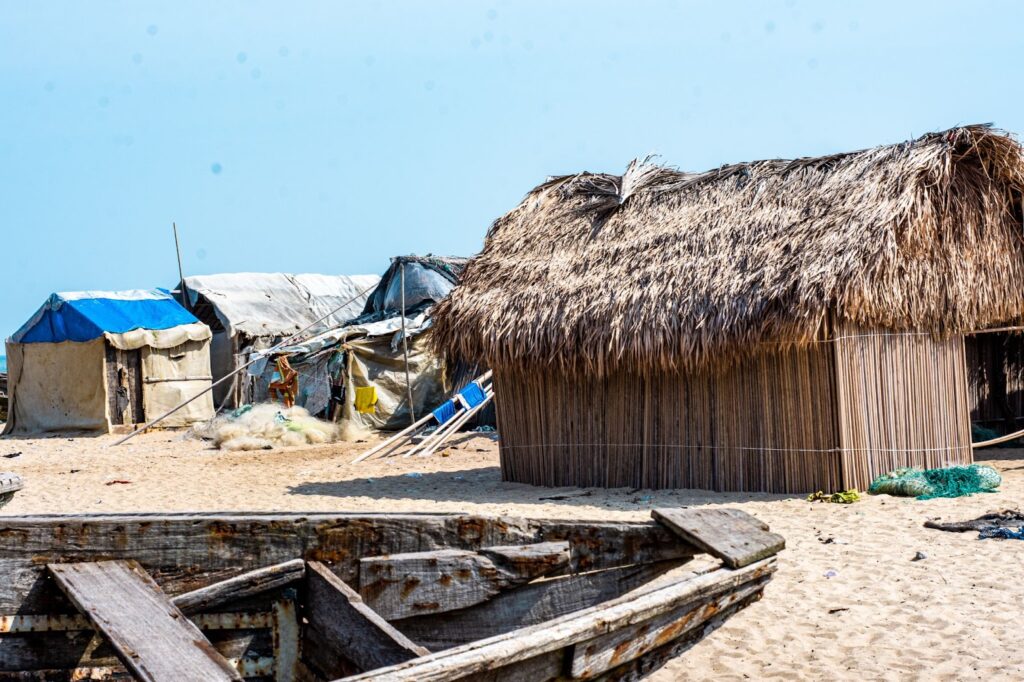
The place many call Lekki is an extension of the small rural settlement between the lagoon and the Atlantic Ocean of Nigeria’s Lagos State. In the dark days of the 19th century, Lekki was a meeting point for invading imperialists trading Africans overseas for cash.
A certain Mr Lecqui, a Portuguese slave master, was notorious for perpetuating this small town to merchandise Nigerians for slave labour abroad. He had built a slave trade empire and the small town would later be named after him. Mr Lecqui would die of severe malaria in his Lekki home, after many years of active slave-trading of Nigerians, according to historical records.
But in 1963, Obafemi Awolowo, Nigeria’s first premier of the Western Region, was charged with treasonable felony and his prison home would be Mr Lecqui’s former apartment in Lekki. His restriction to the town would let him explore the area closely.
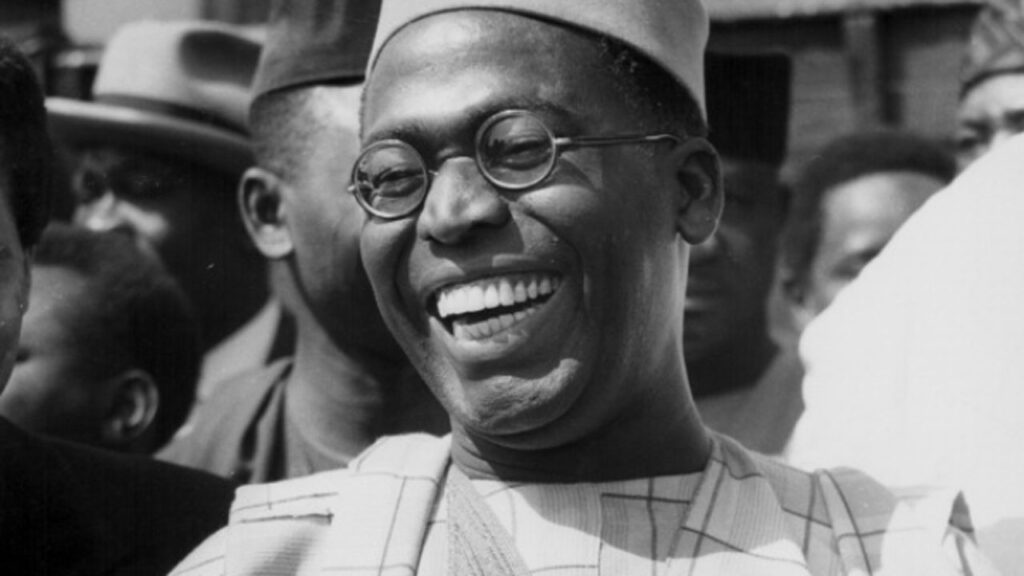
He then acknowledged the great uniqueness of Lekki town, due to its numerous natural resources and biodiversity, prophesying that the area would be a hub for great economic potential and an industrial revolution. And in truth, decades after Mr Awolowo’s prophecy, the Deep Seaport, the Dangote Refinery, and other economic-growing industries, sprouted out of the Lekki soil.
But these developments would not be cost-free.
The Environmental Cost of a Multi-Billion Seaport
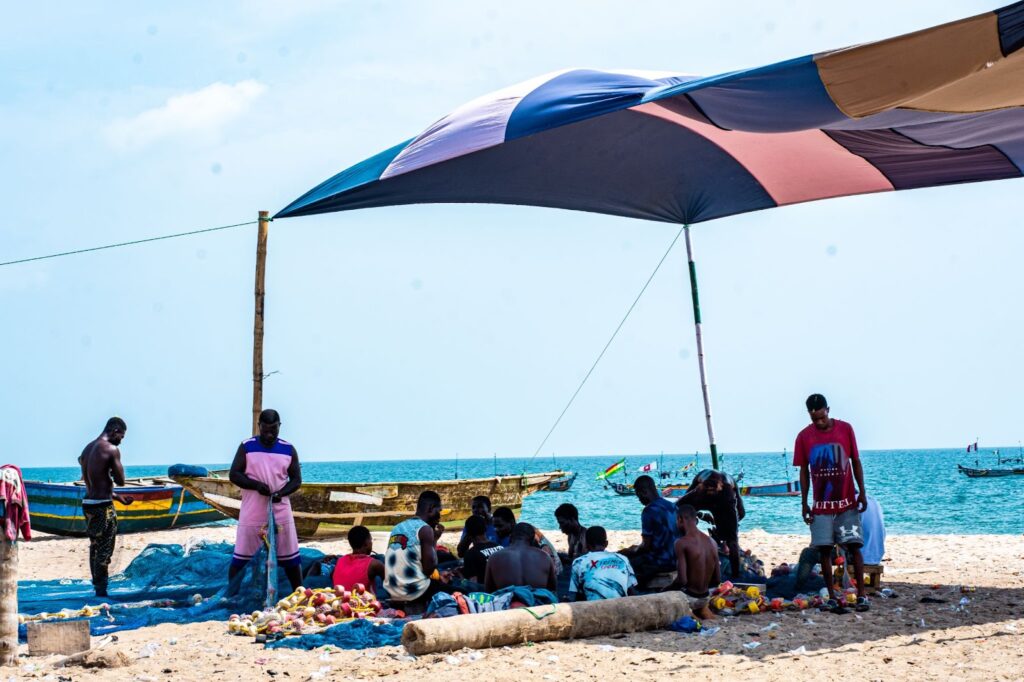
Misfortune trailed the people of Lekki when the government engineered the seaport. As industrial activities germinated on their land, the locals in Lekki failed to grow with these developments. This costs them their livelihood because their sole and traditional source of income is fishing. But the era of enjoying the gifts of nature abundantly is vanishing due to the emergence of the port and other industries.
Residents said their fishes consume the daily toxic excreta from the seaport. These fishes are weakened once they taste the dangerous wastes and eventually die or run far away.
Sunday Abouhje, a fisherman on the seashore, is a witness to the tears of the Lekki people. I met Mr Abouhje in Idotun, a small village on the shore of Lekki. The heavy-hearted man trudged through the sandy road of the riverine community, carrying the burden of insistent self-doubt over yet another failed fishing adventure.
“May the good, flourishing moments return to Idotun,” he told PREMIUM TIMES, revealing how his life had changed in many ways he never envisaged.
When I asked what exactly has changed, he said: “These days, we suffer before we catch fish. Before now, we would use the engines for seven or eight years before they get spoiled, but now they get spoiled quickly. The cause is the chemicals they pour into the water (from the seaport).”
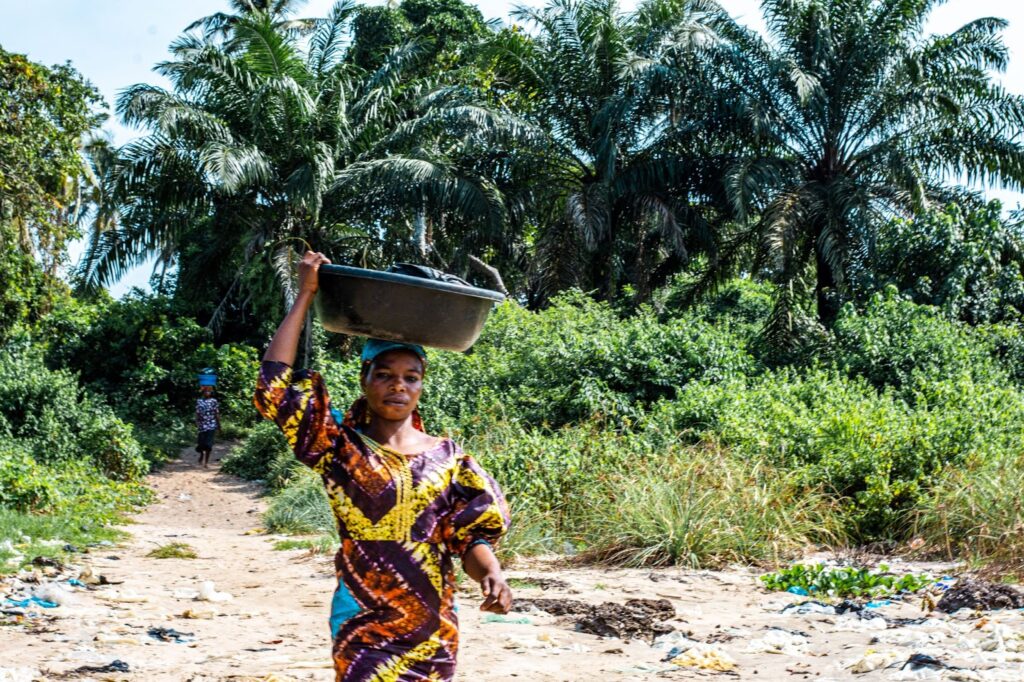
Environmental and port experts consulted for this story said the same thing: Toxic discharges from ships could be sources of water pollution. Bilgewater, ballast water, oily wastes, sewage, and garbage, among others, are residues in a ship that could toxify water. They also said spills of oils, lubricants, fuels and other oily liquids may be other sources of water pollution.
Once an oil or oily compound is discharged into water, it is spread on the surface by winds and currents, forming a thin layer, a report by the Economic and Social Commission for Asia and Pacific, stated. On the surface of seas in tropical or temperate zones, oils can be polymerized gradually by biodegradation and eventually form dense particles which sink.
The Lekki Seaport is established on the Lagos Free Trade Zone, a multi-billion naira investment destination with world-class infrastructures. The Free Trade Zone industrial complex — integrated with the Lekki Seaport — is harming the host communities, the recipients of its industrial wastes. Using geospatial assessment, the experts said the Free Trade Zone industries have two main drainage channels where they dispose of industrial wastewater.
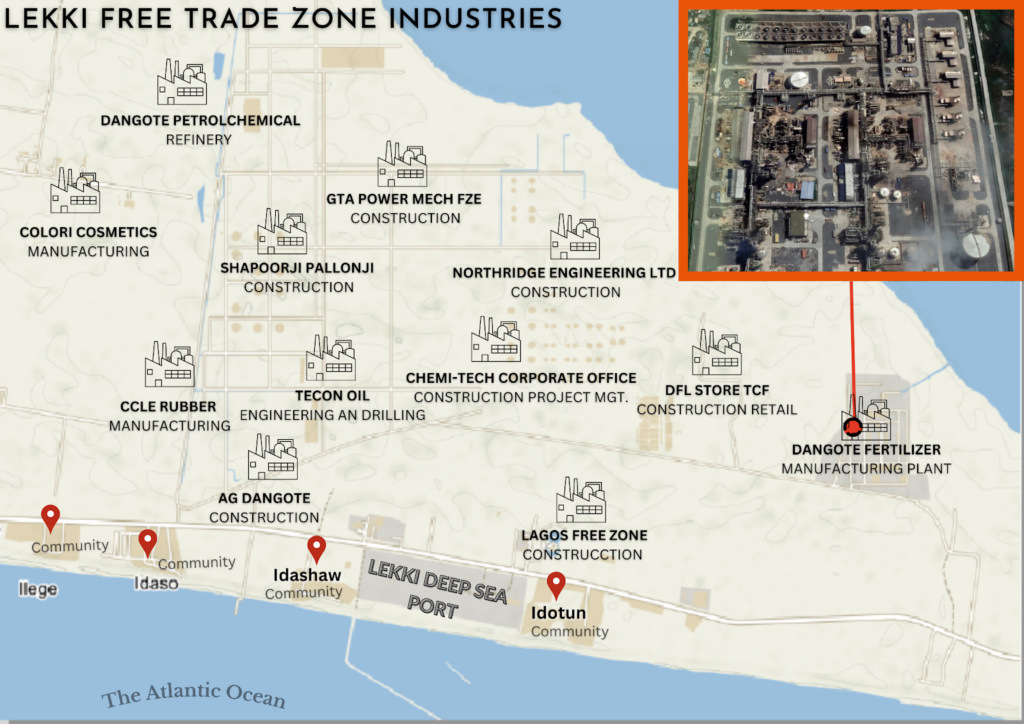

The waste from sailing vessels, the fragments from dredging and the oily pass-outs from machines deployed to construct the seaport endanger the people’s lives and destroy their marine biodiversity. However, other industries in the Free Trade Zone aggravate the conditions of the people as they have nowhere else to deposit their wastes than directly into the waters where the fishes live and the fishermen seek survival.
Experts said this has implications for the fishing economy, considering that the drainages lead directly to the fishing coast of these communities, depositing oil and cosmetic chemical waste in the basin.

Palm, Coconut Trees, and Lake Swamps Are Dying
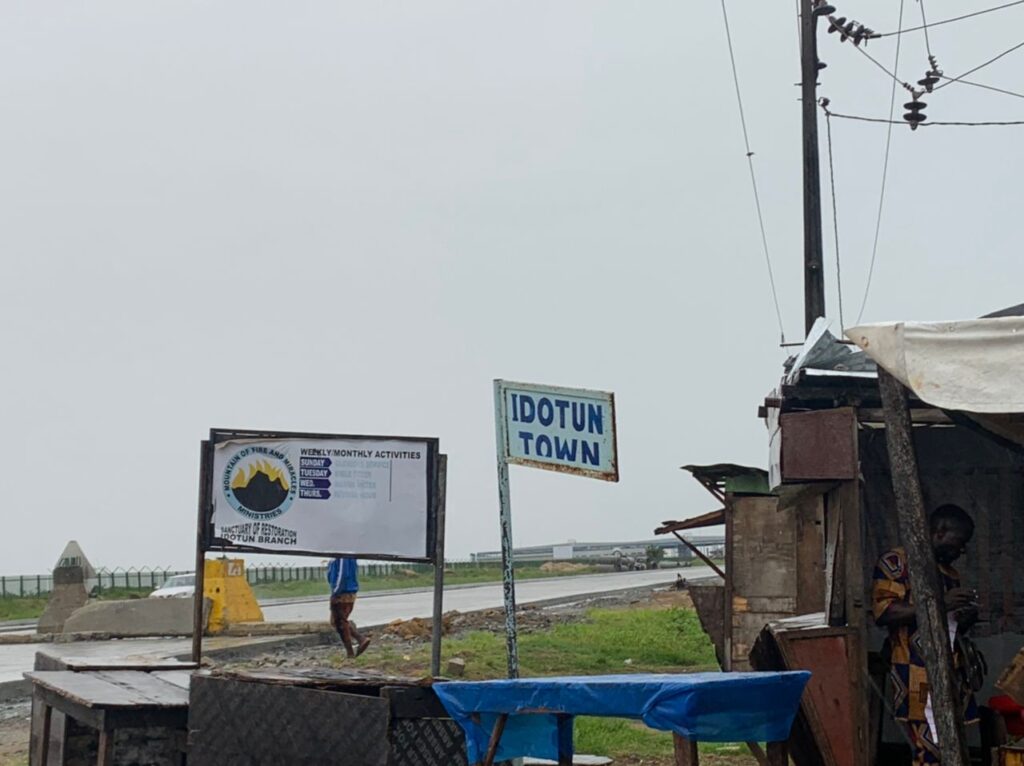
What exactly is consuming the swamp lakes in Idotun, a small community in Lekki? Neither the villagers nor their chiefs could provide an answer. Their narrative was that the lake swamp is a natural gift and the God of nature has taken it from them.
They were wrong.
Before the construction of the Lekki Seaport, there were two swamp lakes in Idotun, situated about 2 kilometres apart. These lakes flanked the community and withstood change for decades.
Today, only one of the lakes is there.
On the far shores of Idotun and Magbon Segun, however, hundreds of palm and cocoanut trees have died since the emergence of the port, residents said. Before now, villagers said cocoanut was a common commodity in the area. Many people depended solely on trading cocoanuts and palm kernels but that business is fast dying. The palms and cocoanut-dominated lands had been taken over and turned into the jetty areas of the port, residents said.

The emergence of the deep seaport had depleted the swamp pond on the western side of this community. The Chinese engineers working on the seaport had sand-filled the lake to level the ground to carve a dock area for the seaport. And now, satellite images PREMIUM TIMES obtained show that the deep port’s shipping park has consumed the swamp lake.
Two Ports, One Tragedy: Eaters of the Lekki’s Biodiversity
Some 10 kilometres from the Lekki deep port is a smaller port belonging to Aliko Dangote, Africa’s richest man. It’s a cargo port for the Dangote Refinery. Satellite data show the jetty area of the smaller Dangote port was indeed built at the expense of a 29,000 sqm pond. No less, the Dangote seaport is an accomplice to the Lekki deep port in the tragedy befalling the swamp water ecosystem of the town.

In the above satellite image, for example, data shows the Dangote jetty earlier in 2022 where the water from the Atlantic Ocean extends into this artificially constructed basin area. This landscape was indeed a swamp water ecosystem before the port and human invasion compromised it.
Port activities such as sand filling, dredging and drilling overwhelmed the mangroves and swamp lake in the hosting communities.
In another satellite image obtained, our geo-location investigations revealed a significant biodiversity richness before the ports’ construction kicked off.
The swamp lake near the Dangote port was sand-filled in some parts and its basin was dredged to connect it to the nearby ocean, grossly changing the ecosystem. The swamp lake was swapped with ocean water, changing the conditions suitable for species.
Our investigations also revealed that not only was the lake ecosystem compromised, but the mangrove vegetation, situated on the banks of the small body of water, was also affected. Using 2015 as our closest pre-construction period, satellite data shows that riverine mangrove vegetation in Lekki decreased from about 7 to about 2.5 acres.

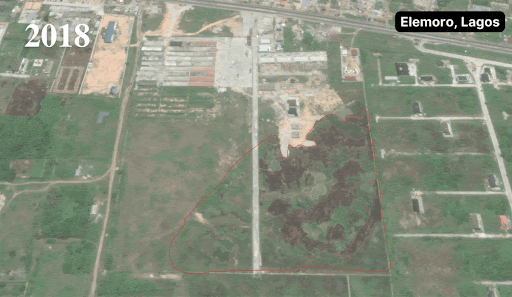
Mangroves Are Dying, Wetlands Are Disappearing
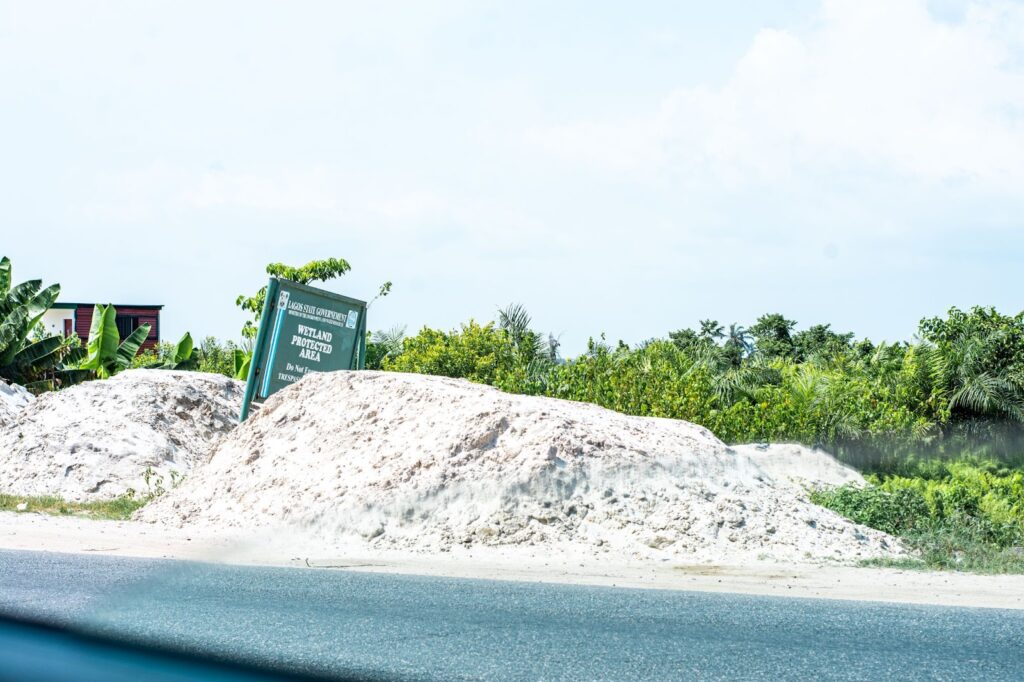
Before the construction of the seaport began, three wetlands were projected to be affected by the new project. One of them was a large swamp forest blessed with mangroves adjacent to the Lekki lagoon which is now largely dead following the completion of the seaport project.
In 2016, notable environmentalists in Nigeria recommended that the wetlands be preserved. After conducting a rigorous study, the experts warned constructing a seaport near the wetlands could hurt the forest swamp and biodiversity of the area.
Seven years later, our satellite investigation shows a massive disappearance of the wetland areas in the port’s stakeholding communities, including Idotun, and Magbon Segun and extending to the Elomoro areas of the Ibeju-Lekki Local Government Area of the state. This industrial invasion inspired by the construction activities on the port’s site has killed the green vegetation and natural mangrove existence in the communities.
In my interactions with the residents of the landscape, I gathered that before the construction of the ports and its induced developmental invasions, the communities, largely sitting on wetlands, were dominated by mangrove trees and vegetation, fauna and flora in the coastal areas, among other beautiful nature gifts sustaining human existence.
At least three land surveyors in the area said since the construction of the seaport began, wetlands in Ibeju-Lekki were being sold to the highest bidders. Travelling along the streets of Ibeju-Lekki, I had seen signposts erected by the Lagos government, warning against the invasion of wetland-protected areas. Ironically, wetlands right behind the signposts have been consumed by construction activities.
“Land is the new oil in this area,” said Jide Alabi, a veteran surveyor in Lekki. “The places now occupied by the port used to be wetland areas but have now been sand-filled and the creation of a port in the area attracted real estate managers who have now occupied many of the wetlands in Ibeju-Lekki.”
Flood, Tears and Lamentation
For decades, coastline communities in Lagos have experienced flooding but the establishment of a port in Lekki aggravated the situation in Idotun, Magbon Segun, and some Ibeju-Lekki areas. The engineers of the Lekki port had redirected stronger waves of erosion towards the hosting communities, making them vulnerable to flooding. They erected formidable barriers against erosion to guard the port site. But the consequence of this, experts said, is that there will be erosion deposits somewhere.
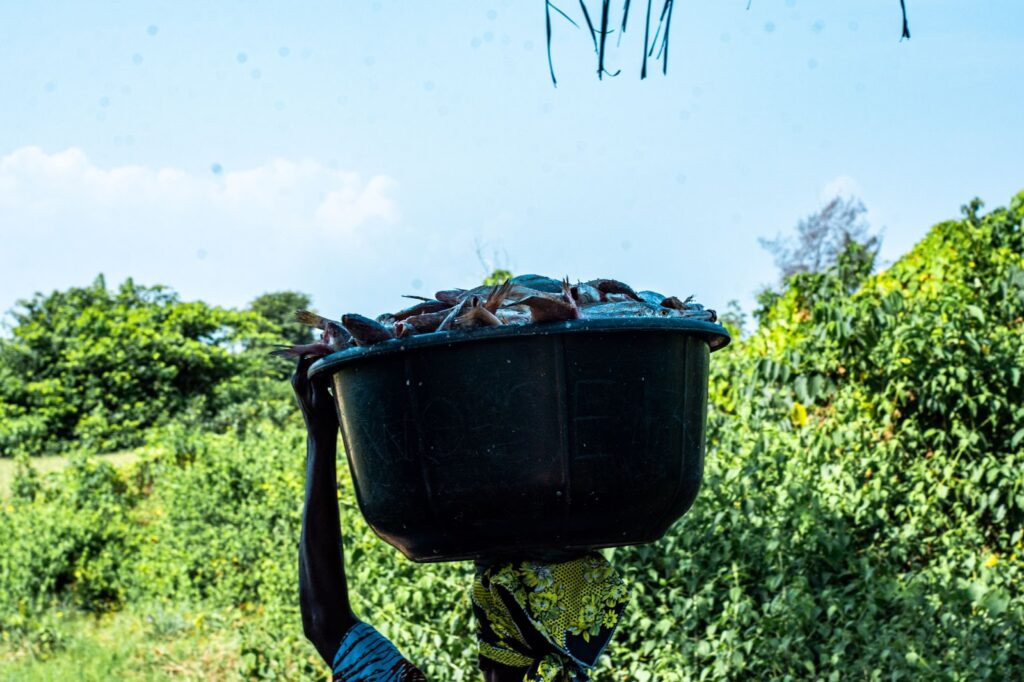
“Ocean waves will deflect back and erosion is the implication,” said Olusegun Adeage, an environmentalist and academic at the University of Lagos. “Unless those natural barriers — wetlands and mangroves — are back or you mimic nature to believe those structures are there. If not, as you save one, you lose one.’’
In five years, the Idotun coastline has eroded by at least 80m – a satellite investigation revealed – leading to the disappearances of houses in their hundreds. Residents said they started experiencing destructive erosion in the area when the dredging and massive sand filling began on the port site.
Compensating the People — Or Luring Them into Silence
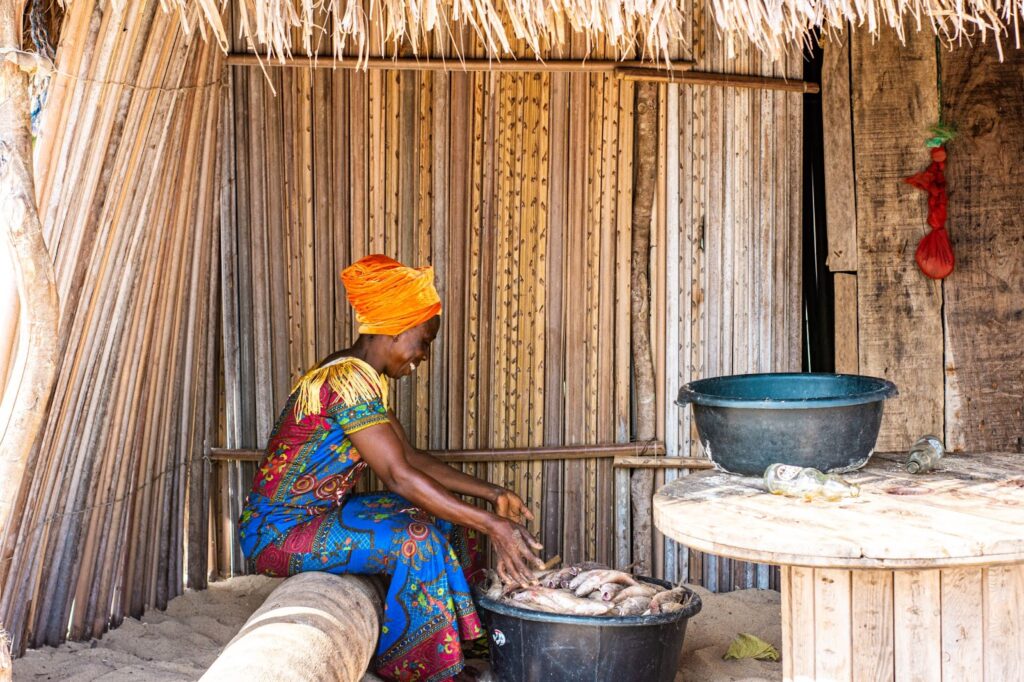
The Lagos State Environmental Protection Agency (LASEPA) representative failed to respond to a public service query sent to its official mail to know what measures have been taken by the authorities to mitigate the adverse effects of the seaport on host communities. The state established LASEPA to ensure sound environmental management programmes and projects in Lagos.
In November 2021, the Lekki port and state officials engaged hosting communities but residents said their engagement results appear to be controversial. PREMIUM TIMES reached out to the Lekki Seaport management on what it has done or is doing to mitigate the adverse effects on the environment. In a statement sent through one of its representatives, Bola Ajibola, the seaport management claimed it adhered strictly to the Environmental Impact Assessment conducted before the construction of the port, following the international environmental standards and support from the Federal Ministry of Environment.
The seaport authorities also said that “the potential impacts identified in the EIA report were managed by continuously monitoring the environmental matrices to mitigate and/or take corrective action if any indices go beyond threshold limits”.
“The construction of the Port was carried out in line with environmental and social management best practices,” the statement read in parts. “We are aware that due to the exigencies of the construction and eventual operations of the Lekki Port, fishing by some of the occupants to the host communities was affected, we engaged the affected persons and fully compensated them.”
However, the claims in the statement do not tally with our initial on-the-ground reporting. A PREMIUM TIMES reporter went back to the host communities to probe further. Several fishermen showed resentment over the “full compensation” claim. They said such a claim is not only mischievous but also an assault on their battered livelihood. Ayinla Ismaila, the chairman of the fishermen in the Lekki community, said the compensation claims by the seaport should be disregarded. Mr Ismaila said he was worried about the claim because there was no way the seaport would “fully compensate” the Lekki community as claimed and he wouldn’t be aware of it.
“There were no formal compensations, per se,” he said in the Yoruba language. “At a time, we were stopped from fishing and we protested, asking them what they wanted us to feed on if we don’t fish. They then gave us some money for food. Is the money — about just N2.5 million — enough as compensation for the damage caused in our lives?”
‘The So-Called Compensation Was Not Even Enough to Buy Cigarette’
Fishermen and local chiefs in Idotun and Magbon Segun villages said Mr Ismaila was right. They described what the seaport management offered the shore people as “gba mabinu” — a small consolation stipend to pacify the fishermen. “Can we call the sum of N50,000 compensation?” asked Liasu Ogundipe, a fisherman and local chief in Idotun.
Mr Ogundipe said he had catered to himself, 10 children and two wives for 29 years as a fisherman before the seaport emerged to batter his livelihood. Now, to even feed is hard, he said. “The so-called compensation was not even enough to buy cigarettes,” he said, wearing a long face dominated with fury.
Other fishermen in Idotun re-echoed Mr Ogundipe’s complaint on the compensation claim by the port management. One such person, Adams Kabiru, said while some people got some consolation stipends from the port management, he got nothing.
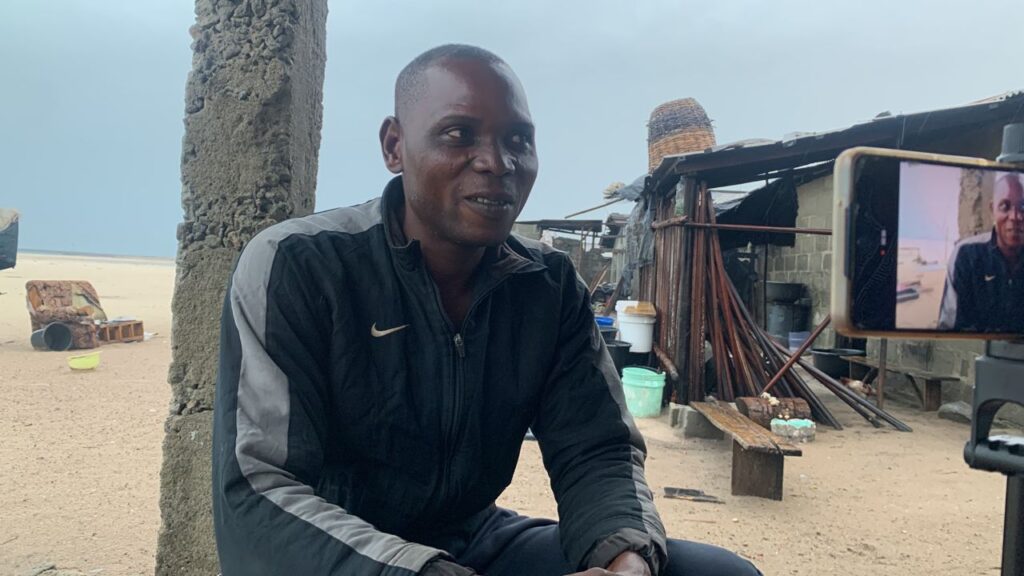
Mr Kabiru said he learned some people, like Mr Ogundipe, were given some money to lure them into silence over environmental damage caused in the community. “But as for me, I received nothing from the seaport,” he said, sharing his ordeal as a fisherman on the Idotun seashore in the last decade.
In Mabgon Segun and its nearby villages, the story is slightly different. While some people admitted to being partially consoled, fishermen and stakeholders in the community insisted nothing was paid or done to them as compensation. Idowu Agbaraojo, 55, said he had been fishing in the community since 1990 but his only means of livelihood has been ruined by the existence of the port. Yet there was no compensation, he said. And at least five other fishermen interviewed in the community said the same thing.
In April 2023, they said, the port management gathered all fishermen on the Magbon Segun shore for a meeting. They had thought matters around compensations would be discussed but they were wrong. At the meeting, the port representatives told them they would begin operations soon and asked for their cooperation to avoid facing the wrath of the authority. “They only gave us the sum of N5,000 as transport fare,” Mr Agbaraojo said. His claim was corroborated by other villagers on the shore.
The fishermen suggested that the Lekki port authorities might have sealed a deal with their village chief but they have received nothing as compensation from them. A PREMIUM TIMES reporter tracked down the village chief, Mufutau Dauda, but he declined to be interviewed. However, a 100-year-old Islamic cleric and a stakeholder in the community, Sharaf Hussein, said nothing seems appealing in the interventions by the government since the seaport emerged.
Mr Hussein confirms the no-compensation claims by other villagers interviewed. He said the community had to fight to get employment slots for their kinsmen at the Lekki seaports yet “our children were only given minor roles”.
“They were giving bigger roles to strangers and giving out casual jobs to our children,” he said. “We have no power on our land; they dictate everything they want to us.”
However, Mr Ajibola of the seaport management insisted that they have cordial relationships and engagements with the affected communities, through the village chiefs. He said several fishermen had been compensated for the damage caused by the construction of the port.
“We have been empowering these communities,” he said, recalling how the port provided palliatives to the villagers during the Covid-19 pandemic. “Some of the fishermen and members of the communities were also employed during the construction of the port.”
Several villagers confirmed the veracity of the palliative and casual employment claim by the seaport management. “The baales (village chiefs) of these communities have always been carried along; they have attended all our activities, including the official commissioning by President Muhammadu Buhari.”
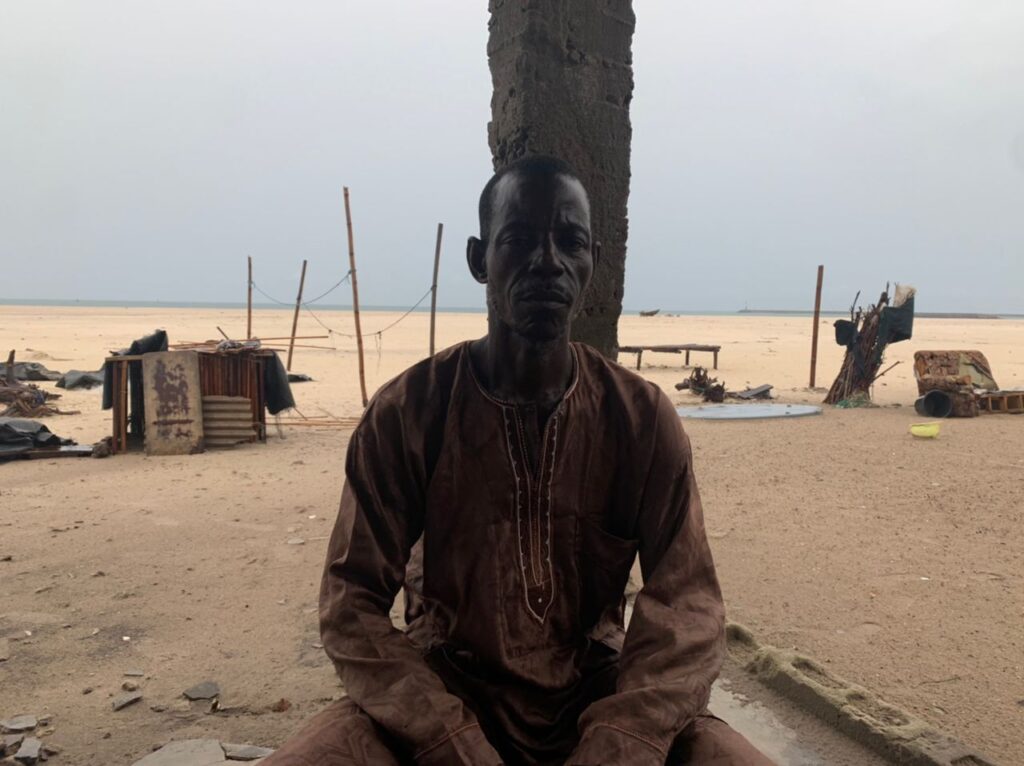
But Suleiman Arigbabu, a Lagos-based environmentalist, argued that the seaport authority must be transparent with the compensations. He said the fishermen and other villagers in the affected communities deserved uncontroversial due compensation for the damage caused to the environment and their livelihood. He advised that compensations in such cases are given based on the worth of the losses.
“There has to be a remediation to the ecosystem destruction, the halted livelihood of the people and the land,” he told PREMIUM TIMES, adding that the authority must ensure the people are resettled to regain their losses.
“People will no longer be able to fish for the majority part of the area. The economic activities need to be costed and the port authorities should consider acquiring technological tools that could help the fishermen to go deeper into the sea for their fishing activities,” he added.
This story was produced with support from the Rainforest Journalism Fund in partnership with the Pulitzer Center.
Support Our Journalism
There are millions of ordinary people affected by conflict in Africa whose stories are missing in the mainstream media. HumAngle is determined to tell those challenging and under-reported stories, hoping that the people impacted by these conflicts will find the safety and security they deserve.
To ensure that we continue to provide public service coverage, we have a small favour to ask you. We want you to be part of our journalistic endeavour by contributing a token to us.
Your donation will further promote a robust, free, and independent media.
Donate HereStay Closer To The Stories That Matter




